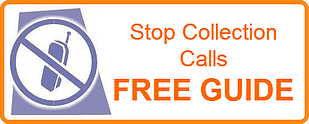A wage garnishment can be financially devastating, taking 25% of you net, take-home paycheck!
Here what you need to know to prevent or how to stop garnishments.
 A wage garnishment doesn't "just happen". After years and years of assisting people with debt problems, it still always amazes me when one of our prospects or newer clients that have received a notice from their employer that their pay check is going to be garnished, says something like:
A wage garnishment doesn't "just happen". After years and years of assisting people with debt problems, it still always amazes me when one of our prospects or newer clients that have received a notice from their employer that their pay check is going to be garnished, says something like:
I had no idea that this could happen. I never received anything about it.
How did this happen?
OK... Time Out!!!
A wage garnishment (technically called a Writ of Garnishment) can't happen without several steps preceding the order.
Let's start from the start...
You have several credit cards or other unsecured debts and because of something that has happened to you, such as:
- Divorce
- Severe illness or disability
- Death of spouse or loved one
- Too little fixed income after retirement
...now you just cannot keep up with the minimum payments due and start missing payments or just stop making payments all together.
When this happens, the creditor will start calling and writing letters trying to find out what is going on and to see if something can be done to get you to start making payments again.
If you ignore these calls and/or letters (and many, many people do), then the original creditor has no choice but to charge off, transfer or even sell the account to a debt collector or debt buyer.
Now the calls and letters really start to increase!
The good news is that you can put a stop to these annoying and sometimes harassing calls:
Just follow the link above, and the calls will stop.
But, that doesn't mean that these debt collectors are going to stop their efforts to get you to pay!
So what should you do?
Let's say that you have several credit cards and because of going through a serious illness or injury, you have not been able to work, your income went down, and now, you are not able to make even the minimum required payments due.
When the creditor or collector calls, you may be able to negotiate a SETTLEMENT.
Again, depending on a number of circumstances, the creditor or collector may accept an amount that is 40% - 60% of the balance.
If you don't engage them, then the creditor or collector may decide to FILE A CLAIM against you in the county court where you live.
After the Claim has been filed, a SUMMONS will be issued and you will be SERVED the summons. This could be at home or even at work!
When you receive the Summons, again, you CAN NOT IGNORE THE SUMMONS! Even after the summons has issued and served, you should still be able to negotiate either a settlement or a repayment agreement.
But, if you don't, then there will be a court date set, and the creditor/collector will be awarded a DEFAULT JUDGMENT.
Once the judgment has been awarded, the Plaintiff (creditor/collector) can apply for a WRIT OFGARNISHMENT. This will be sent to your employer and your employer has no choice but to obey the Writ!
Most likely, your state demands that the employer withhold an additions 25% of your net check (after taxes and required deductions have been removed).
This can be devastating! Here's an example:
- You earn $36,000/year or $3,000/month.
- You are paid every two weeks and that bi-monthly check is $1500.
- State and Federal taxes equal 30%, so $450 is withheld and your net check is now $1,050.
- Your employer must withhold an additions 25% or $262.50.
- That's $525 each month! You think it was hard to pay bills before...
I'm thinking you are starting to understand, that you cannot just ignore your debts, letters or calls, and especially a summons.
If you did, and now you have a wage garnishment, here's what you can do:
Contact the attorney for the plaintiff (that's the collector or creditor).
Explain you situation and if you have it (most likely you won't) offer a lump sum settlement on a reduced balance.
Usually, they won't take a reduction, but if the offer is large enough, they might.
Most of the time, they will be willing to accept an agreement whereby you pay them, say $200 -$300 a month (instead of, in this example, $525/month).
But, due to your financial hardship, you just can't afford any payment or the garnishment?
In this case, you should seek the services of a bankruptcy attorney. This may be your only choice to protect yourself from the creditors!
I hope you understand my simple point....
- A wage garnishment doesn't just happen.
- If it does, you still have options.
- The key is to take action! Don't just "hide your head in the sand"!






 Can a Debt Collector Garnish Retirement Income?
Can a Debt Collector Garnish Retirement Income?



